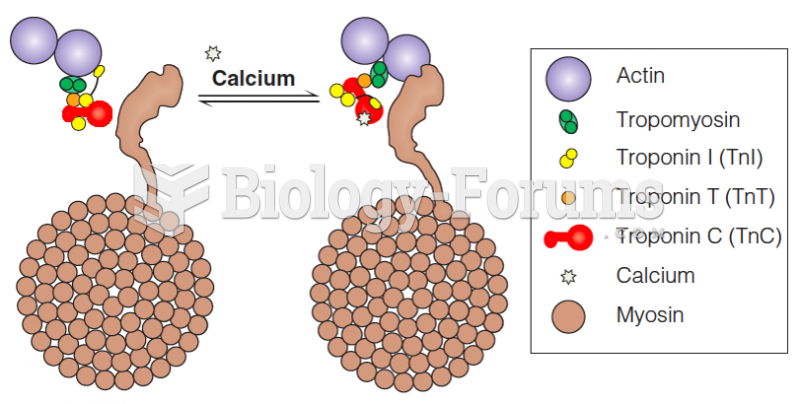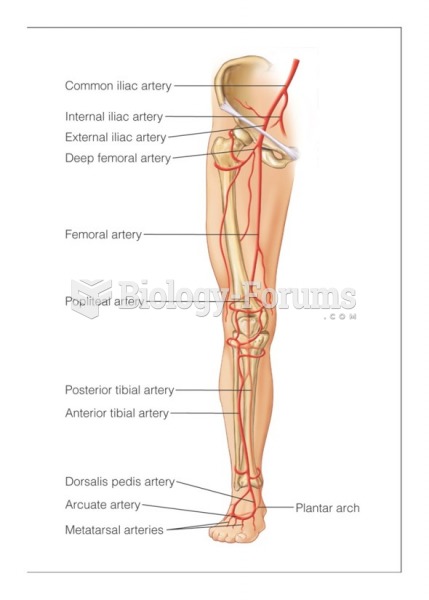|
|
|
About 3% of all pregnant women will give birth to twins, which is an increase in rate of nearly 60% since the early 1980s.
The most common childhood diseases include croup, chickenpox, ear infections, flu, pneumonia, ringworm, respiratory syncytial virus, scabies, head lice, and asthma.
A seasonal flu vaccine is the best way to reduce the chances you will get seasonal influenza and spread it to others.
There can actually be a 25-hour time difference between certain locations in the world. The International Date Line passes between the islands of Samoa and American Samoa. It is not a straight line, but "zig-zags" around various island chains. Therefore, Samoa and nearby islands have one date, while American Samoa and nearby islands are one day behind. Daylight saving time is used in some islands, but not in others—further shifting the hours out of sync with natural time.
Serum cholesterol testing in adults is recommended every 1 to 5 years. People with diabetes and a family history of high cholesterol should be tested even more frequently.
 The appearance of different types of tissues-muscle, epithelial, nervous, connective-and their locat
The appearance of different types of tissues-muscle, epithelial, nervous, connective-and their locat
 Glioma. (a) Illustration of a large glioma (colored area) within the left cerebral hemisphere in a s
Glioma. (a) Illustration of a large glioma (colored area) within the left cerebral hemisphere in a s





